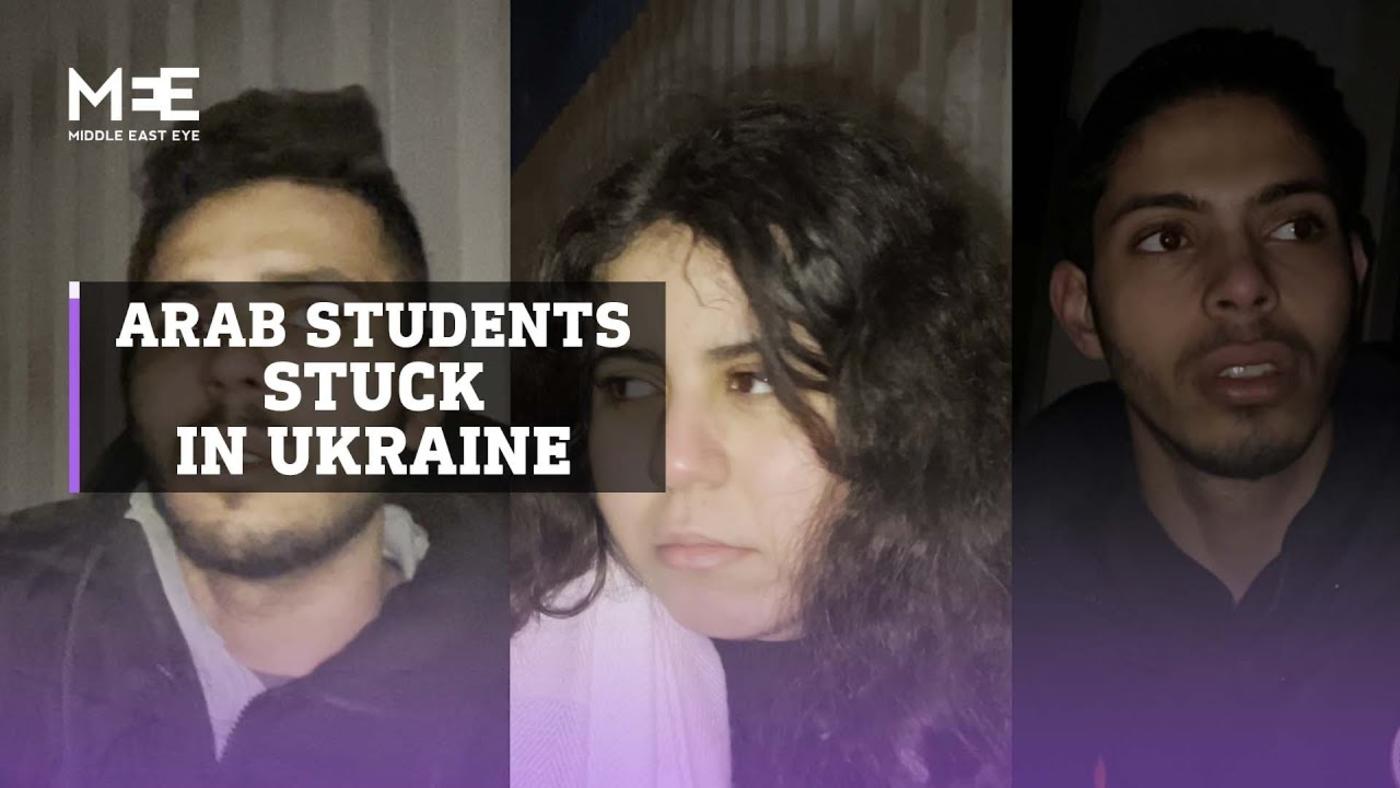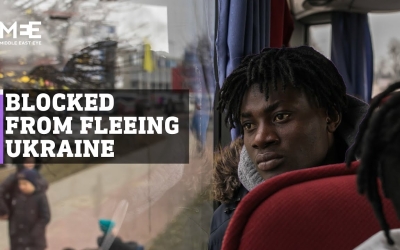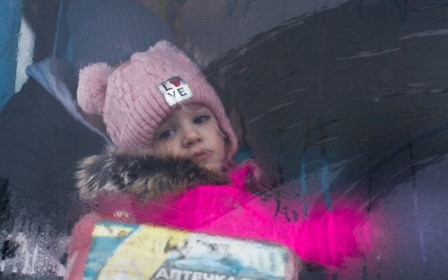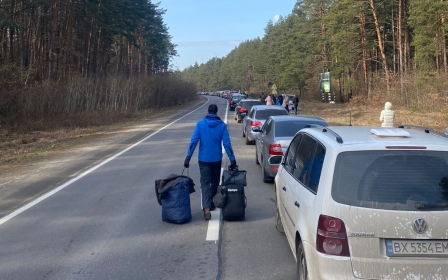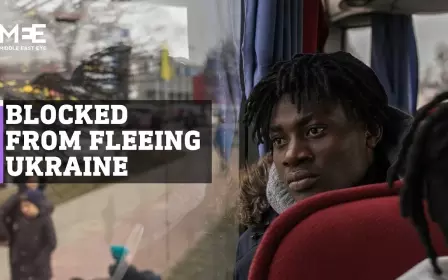Russia-Ukraine war: Egyptian citizens at borders 'beaten' and abandoned
Middle East Eye has contacted Egyptian citizens attempting to escape the Russian bombardment in Ukraine by crossing the country's borders into Poland and Romania.
Stories emerged of people feeling abandoned or given misinformation by Egypt's authorities, of being treated appallingly by border guards that "prioritised white people", of being left to freeze without shelter and, in some cases, beaten.
Adham Alaaeddin, a 20-year-old Egyptian engineering student studying in Ukraine’s second-largest city, Kharkiv, said they heard the sound of Russian bombardment at four in the morning and decided to leave. He and his friends packed their belongings and drove 1,060km to Lviv in western Ukraine.
''The Egyptian embassy in Ukraine told us not to worry and stay at home. I don't know what my fate would have been had I taken their advice,” he told MEE.
Kharkiv, a city of 1.5 million people near the Russian border, has borne the brunt of attacks since Monday.
Once in Lviv, Alaaeddin said that they walked almost 50kms, as the road to the Polish border was blocked with long queues of cars waiting to cross.
''The only option is to walk towards the border, and it took us 11 hours to reach it,'' he said.
Still, their time at the border was the most challenging part of their journey. As they waited for three days, Alaaeddin and his friends were stuck in a tight space without much room to move.
''When we make a fire to warm ourselves, the Ukrainian police force us to put it out,'' he said.
''We were sleeping in freezing weather without any cover, and even after passing the border, we didn't know what to do and where to go.”
The Egyptian embassy in Poland on Facebook appealed to its citizens who had crossed into Poland to reach out in order to check on their conditions and take their information, adding that it was communicating with Polish authorities to facilitate their transit.
'Prioritising the white people'
Mahmoud Abu al-Soud, a medical student from Upper Egypt, and his friends from university paid $250 for a private car to drive them to Lviv, from where they walked 40kms to the Korczowa-Krakovets border crossing.
There they stood in line for four days, hopelessly waiting to pass to Poland.
''The food sellers didn't want to sell us any food, and they were prioritising the white people,” he told MEE.
He said that there was apparent racism from the Ukrainian police in the way they treated them, adding that a female police officer beat and wounded one of his companions.
'We haven't had any assistance from the Egyptian embassy, whether in Poland or Romania'
- Mahmoud Abu al-Soud, Egyptian student
''They also never let us or our female friends keep our right place in the queue,” Abu al-Soud said.
''They were moving us back whenever we got closer to the passport checkpoint on the Polish side.”
They decided to return to Lviv after the treatment they received from the Ukrainian police and other individuals.
“It took another nine to 10 hours to walk the same distance again, and we were struggling as we helped our female friends to pull their luggage.’’
After arriving in Lviv, they hired another private car to drive them to the Romanian border, which was not as busy as the Polish one.
''We received better treatment there, even from the Ukrainian police, and now we feel safe.''
Abu al-Soud added that some Romanian NGOs at the border provided them with food and sim cards to enable them to call their families.
''We haven't had any assistance from the Egyptian embassy, whether in Poland or Romania. Even the bus that will take us to Bucharest, from where we will fly to Egypt, is provided by the Romanians.''
'They have no food'
"My son is married to a Ukrainian, but they’ve only let her pass to the Polish side. My son has not been allowed to cross yet,” said Umm Khaled, whose Egyptian son is in his sixth year of medical school in Ukraine.
MEE reached Umm Khaled through a WhatsApp group for Egyptian families trying to contact their loved ones stuck on Ukraine's borders.
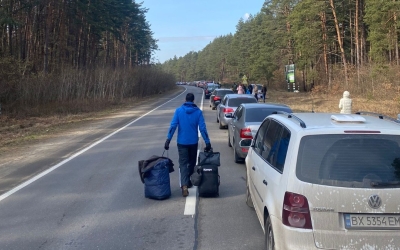
Umm Khaled said that she has lost contact with her son after his phone’s battery died, adding that he’d been stuck on the border for four days in the freezing cold.
"They have no food, and even their drinking water has frozen,” she said.
Umm Khaled said that when she contacted the Egyptian embassy in Warsaw to request that they provide stranded Egyptians with food, they were told that they couldn’t help because they were still in Ukraine. She also contacted the Egyptian prime minister’s office and the Egyptian embassy in Kyiv but did not receive helpful responses.
"[Ukrainians] are hosted perfectly here, while they treat our citizens like slaves," she said in reference to an announcement by the Egyptian tourism ministry that it would allow Ukrainian tourists already in the country to stay in Egyptian hotels for free until it was safe to return home.
On Tuesday, Filippo Grandi, the UN High Commissioner for Refugees, admitted in a statement that some non-European refugees had faced racism at Ukraine’s borders while trying to flee.
This article is available in French on Middle East Eye French edition.
Middle East Eye delivers independent and unrivalled coverage and analysis of the Middle East, North Africa and beyond. To learn more about republishing this content and the associated fees, please fill out this form. More about MEE can be found here.


